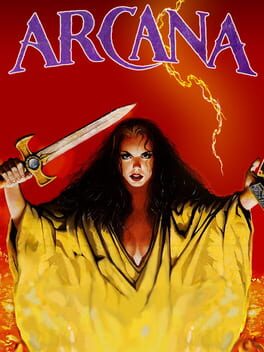The whole game is a war of attrition. Once your spirits learn their healing spells, dungeons become a simple matter of hoping the arbitrary encounter rate gives them enough time to recharge their MP before one of your human characters croaks. Readily available healing items do little to offset the linearity of the resource management, and the only meaningful choice is deciding whether to set aside some of the spirits' MP for their equally important multi-target attack spells. All of Arcana's constituent mechanical elements are simple, really; enemies and even bosses rarely have more than one option; combat is staged unfussily and reasonably well-paced, assuming there are fewer than five enemies in the group, which happens less often than you'd think; the dungeon design is spare yet offhandedly cruel, punishing the curious adventurer with long or complex paths that lead to marginal rewards (if any at all). No real surprise that Shin Megami Tensei would banish this to obscurity six months later.
To its credit, it certainly has more flair than your typical Might and Magic/Wizardry-like. Frankly I only played it because I wanted to enjoy some of Jun Ishikawa's early non-Kirby music and it's a more tolerable game than Alcahest.
To its credit, it certainly has more flair than your typical Might and Magic/Wizardry-like. Frankly I only played it because I wanted to enjoy some of Jun Ishikawa's early non-Kirby music and it's a more tolerable game than Alcahest.
